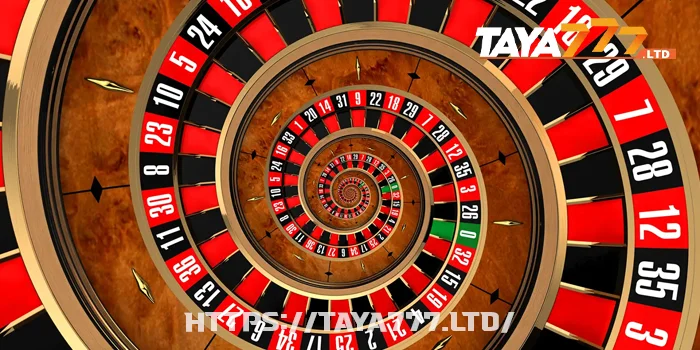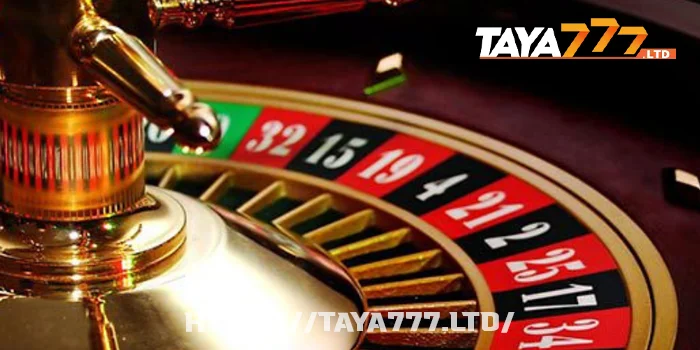Identifying Triggers for Gambling Problems: Know the Risk Factors

Problem gambling is a complex issue that affects millions worldwide. Understanding and recognizing triggers for problem gambling is crucial for identifying at-risk behaviors and implementing effective interventions. This article explores the common triggers, risk factors, and strategies to mitigate gambling addiction, incorporating insights for both gamblers and stakeholders in the industry, such as TAYA777.
What is Problem Gambling?

Definition of Problem Gambling
Problem gambling, also known as gambling addiction or pathological gambling, is characterized by an uncontrollable urge to gamble, despite the negative consequences it brings to one’s personal and professional life. Unlike recreational gambling, which is done for entertainment, problem gambling leads to significant emotional and financial distress.
Why Recognizing Triggers for Problem Gambling is Important
Understanding and identifying triggers for problem gambling is a critical first step in tackling this issue. Recognizing the early signs can help individuals seek timely support and prevent severe outcomes such as financial ruin or mental health crises. Moreover, platforms like TAYA777 promote responsible gambling practices, emphasizing player safety and education.
Common Triggers for Problem Gambling Behavior

Emotional and Psychological Triggers
Many problem gamblers turn to betting as a way to cope with negative emotions such as:
- Stress and Anxiety: Gambling offers a temporary escape from the pressures of daily life.
- Depression: The thrill of a win provides a fleeting sense of euphoria, masking underlying sadness.
Environmental and Social Influences
- Exposure to Gambling Environments: Casinos, online platforms, and betting advertisements can normalize gambling.
- Peer Pressure: Social acceptance of gambling often leads individuals to participate without fully understanding the risks.
Financial Pressures as a Catalyst
- Chasing Losses: A gambler who loses money might feel compelled to continue betting to recover losses.
- Belief in Gambling as a Financial Solution: Many wrongly view gambling as a way to solve financial problems rather than a high-risk activity.
Risk Factors That Contribute to Gambling Addiction
Personal Characteristics
Certain traits make individuals more susceptible to gambling problems:
- Impulsivity: Difficulty in resisting urges or delaying gratification.
- Family History: A genetic predisposition to addictive behaviors.
Sociocultural Factors
Cultural norms and accessibility also play a role:
- Cultural Attitudes: Societies that glamorize gambling tend to have higher rates of addiction.
- Accessibility: The rise of online platforms like TAYA777’s Guide to Selecting the Best Esports Betting Platform increases exposure to gambling activities.
Co-occurring Disorders
- Mental Health Conditions: Disorders like anxiety and depression often co-occur with gambling addiction.
- Substance Abuse: Alcohol or drug use can amplify impulsive gambling behaviors.
Recognizing Triggers for Problem Gambling in Daily Life
Behavioral Patterns to Watch For
- Increased Time and Money Spent Gambling: Neglecting responsibilities to gamble.
- Lying About Gambling Activities: Concealing gambling habits from friends and family.
Physical and Emotional Signs
- Restlessness When Not Gambling: Feeling irritable or agitated when unable to gamble.
- Heightened Excitement Before Placing Bets: A noticeable spike in adrenaline or focus on betting.
How to Mitigate Triggers and Reduce Risk
Developing Healthy Coping Mechanisms
- Stress Management: Techniques like mindfulness or exercise can reduce emotional reliance on gambling.
- Support Systems: Friends, family, or community groups can provide accountability and encouragement.
Setting Boundaries Around Gambling
- Limit Access to Platforms: Use tools that block gambling websites or apps.
- Manage Financial Risks: Set strict budgets to avoid overspending, as detailed in Responsible Betting: Essential Guidelines for Every Bettor.
Seeking Professional Help
- Therapy Options: Cognitive Behavioral Therapy (CBT) is proven to help change harmful gambling behaviors.
- Support Groups: Gamblers Anonymous and similar organizations offer community-based recovery.
Preventative Measures for At-Risk Individuals

Educating Yourself and Others
- Awareness Campaigns: Highlight the dangers of gambling addiction and the importance of recognizing triggers.
- Promoting Responsible Gambling Practices: Platforms like TAYA777 encourage players to gamble responsibly through self-exclusion tools and educational resources.
Identifying At-Risk Individuals Early
Early detection can prevent severe consequences. Key strategies include:
- Monitoring changes in behavior.
- Providing resources and support to those displaying signs of addiction.
Final Thoughts on Recognizing Triggers for Problem Gambling
Understanding the triggers and risk factors for problem gambling is essential for prevention and intervention. By addressing emotional, environmental, and financial catalysts, individuals can reduce their susceptibility to addiction. Platforms like TAYA777 play a significant role in promoting safer gambling practices through education and tools that empower players.
For more insights on building a responsible gambling strategy, explore Time Management Tips for Responsible and Enjoyable Gambling.
Copyright Notice : This article is an original work by Identifying Triggers for Gambling Problems: Know the Risk Factors It follows the CC 4.0 BY-SA copyright agreement. For reprinting, please attach the original source link and this notice.Original article link : https://taya777.ltd/post/article/identifying-triggers-for-gambling-problems-know-the-risk-factors
Frequently Asked Questions
PAGCOR generally regulates gaming activities in the Philippines and issues the license to operate a gaming activity. Thus, the legal/regulatory framework governing gambling primarily consists of rules and regulations promulgated by PAGCOR.
Casinos face significant challenges including security risks, fraud, cheating, and theft, which persistently threaten their operation. Ensuring the welfare of guests and the security of the premises, casinos implement rigorous security measures to monitor large crowds and maintain safety. Strict regulations at gaming tables are enforced to uphold the integrity of games and prevent cheating. Advanced surveillance systems and secure transaction processes are crucial to deter and detect theft, making the maintenance of a secure and fair gaming environment essential for casino success.












